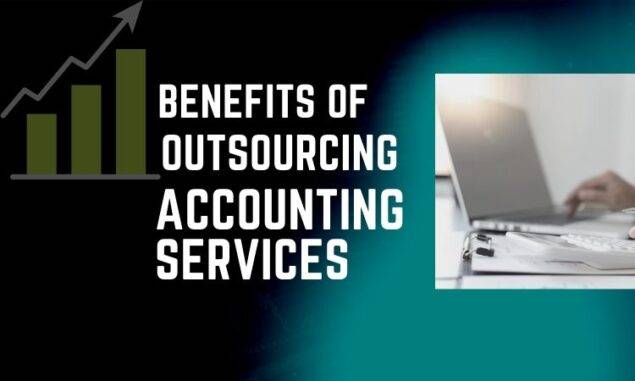Starting your own business marks the beginning of a remarkable journey where dreams take flight and innovation finds its voice. However, budding visionaries face many challenges when stepping into the corporate world.
From navigating through legal complications and determining the optimal business structure to acquiring essential resources and assembling a capable team, the journey of an entrepreneur is burdened with obstacles. Amidst these challenges, financial management is a crucial hurdle that often determines the fate of countless businesses.
Time and again, we witness ambitious ventures succumbing to the challenges of the corporate realm, failing to establish their name and leaving behind a trail of unrealized dreams. Surprisingly, the root cause of their downfall often lies not in the viability of their ideas but in their inability to effectively and efficiently manage their finances.
Financial accounting forms the bedrock of a business’s financial health, providing entrepreneurs with vital information for informed decision-making.
Neglecting or disregarding fundamental accounting principles often inadvertently jeopardizes their startup’s survival in highly competitive corporate ecosystems. Let’s delve deeper into some basic accounting skills necessary for entrepreneurs and why they have become indispensable for budding visionaries.
Your Guide to Developing Accounting Skills
Financial accounting encompasses a range of skills and practices designed to track, analyze, report, and interpret financial transactions. Reporting each financial transaction aims to ensure ultimate precision, transparency, and compliance with legal and regulatory frameworks.
Entrepreneurs can acquire these valuable skills through a degree program, such as an on-campus or online MBA in finance, or through certifications and targeted training courses. Some of the most useful accounting skills you will learn through these programs are as follows:
- In-depth understanding of financial transactions and their categories.
- The concept of debit and credit in financial accounting.
- The practice of recording everyday transactions, such as operational expenses, variable and fixed costs, sales, purchases, etc., in an organized way according to accounting standards.
- The ability to create, interpret, and analyze financial reports, including income statements, balance sheets, cash flow statements, change in equity statements, and cost of goods sold (COGS) statements as per IFRS standards.
- A firm grasp on developing financial budgets and forecasts for a complete fiscal year.
- Comprehensive understanding of tax regulations and requirements and ensuring compliance with industry-specific tax laws.
- Proficiency in various accounting software, including spreadsheet software and dedicated financial applications.
Why Entrepreneurs Need to Learn Accounting Skills
Now that you possess a firm understanding of the fundamental accounting skills, continue reading as we dig deeper into why these skills are indispensable for entrepreneurs:
Stay on Top of Financial Management and Decision-Making
- As mentioned earlier, effective financial management is a critical factor determining startups’ success and failure during their decisive first few years.
- Through financial literacy, particularly in financial accounting, entrepreneurs are better prepared to manage their finances and make critical financial decisions that impact their business’s financial stability and growth.
- With a relevant degree, you master the art of navigating the intricacies of accounting and equip yourself with the competence to overcome any financial hurdles that may impede your business’s performance.
- The valuable skills developed during your education, combined with an in-depth knowledge of corporate finance, become your guiding compass, bringing your business closer to financial success.
Plan and Forecast Like a Pro
- As the visionary behind your burgeoning business, you find yourself assuming multiple roles and balancing many responsibilities. The most important duty among them is the ability to plan your finances for the years to come.
- Whether it entails assessing the financial viability of your venture, strategizing sales and revenue projections, allocating funds to key assets and operational functions, or envisioning expansions and diversification, your profound understanding of financial accounting becomes a guiding light, illuminating your path to accomplish these tasks with effortless finesse.
- Since you have hands-on experience in developing budgets and forecasts, you can develop realistic budgets and forecast your business’s future performance.
- Your accounting skills allow you to set measurable financial goals based on current market trends and economic circumstances.
- You can easily track and monitor your variable and fixed costs, identify areas where you can cut down expenses, and avoid running out of valuable cash.
Manage Cash Flows
- During the first few years of establishing your business, you may face many financial challenges associated with upfront investments and heavy cash outflows, and a negative financial outlook may seem inevitable. However, your invaluable accounting skills help you navigate these challenges and effectively manage your cash inflows and outflows.
- As a maestro in accounting, you can track cash flows and identify payment patterns.
- It helps you make strategic decisions regarding payments, investments, accounts receivables, and funding.
- With a strong knowledge of cash flow management, you can flawlessly balance negative and positive cashflows and maintain adequate liquidity to withstand economic downturns or navigate financial challenges.
Maintain Compliance with Financial Regulations and Standards
- Starting your own business is more than pursuing your visions and generating profits. Achieving success in your unique venture also requires adherence to financial regulations and industry-specific standards.
- Failing to comply with various standards, laws, and regulations can not only land your business in a penalty but also result in a loss of trust in the eyes of stakeholders, creditors, investors, and customers.
- Your firm grasp of tax laws, financial regulations, financial reporting standards, and corporate legalities helps you navigate the legal complexities smoothly.
- From tax declaration to financial and operational leases and reporting, you can ensure that every financial aspect of your business adheres to the highest levels of transparency and integrity.
- Staying compliant with government regulations, financial standards, and tax laws helps you maintain a strong reputation within your industry and create an environment of trust.
Easy Scalability
- Profitable and perpetual growth serves as the lifeblood of any startup. Although countless entrepreneurs embark on establishing their small businesses each year, many fail to scale these ventures within the first 5-10 years.
- Every dollar you reinvest in your business is a stepping stone toward a successful business. However, the secret to this growth lies in meticulously planning your business growth and identifying areas where you can cut costs and increase profitability. Therefore, achieving perpetual business growth is contingent on your extensive knowledge of accounting and corporate finance.
- With a profound comprehension of the intricacies of investment and diversification of businesses, you can effectively share your business growth strategy, negotiate with investors, and secure vital resources necessary to take your business to the next level.
Bottom Line
In entrepreneurship, accounting skills are a vital tool that allows entrepreneurs to control their finances, ensure meticulous compliance, and achieve sustainable growth. Accounting skills are more than just mastering numbers; they empower budding visionaries to shape the destinies of their unique ventures and carve their path toward success. Enrolling in a degree program like an MBA in finance is the first step towards mastering your accounting skills and emerging as a future leader in the corporate world.








